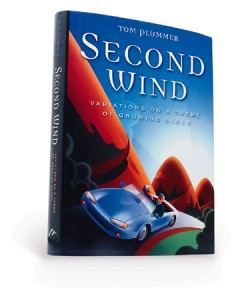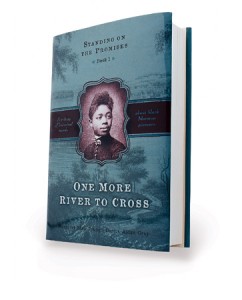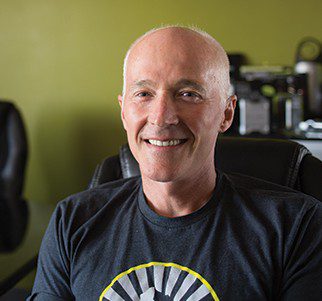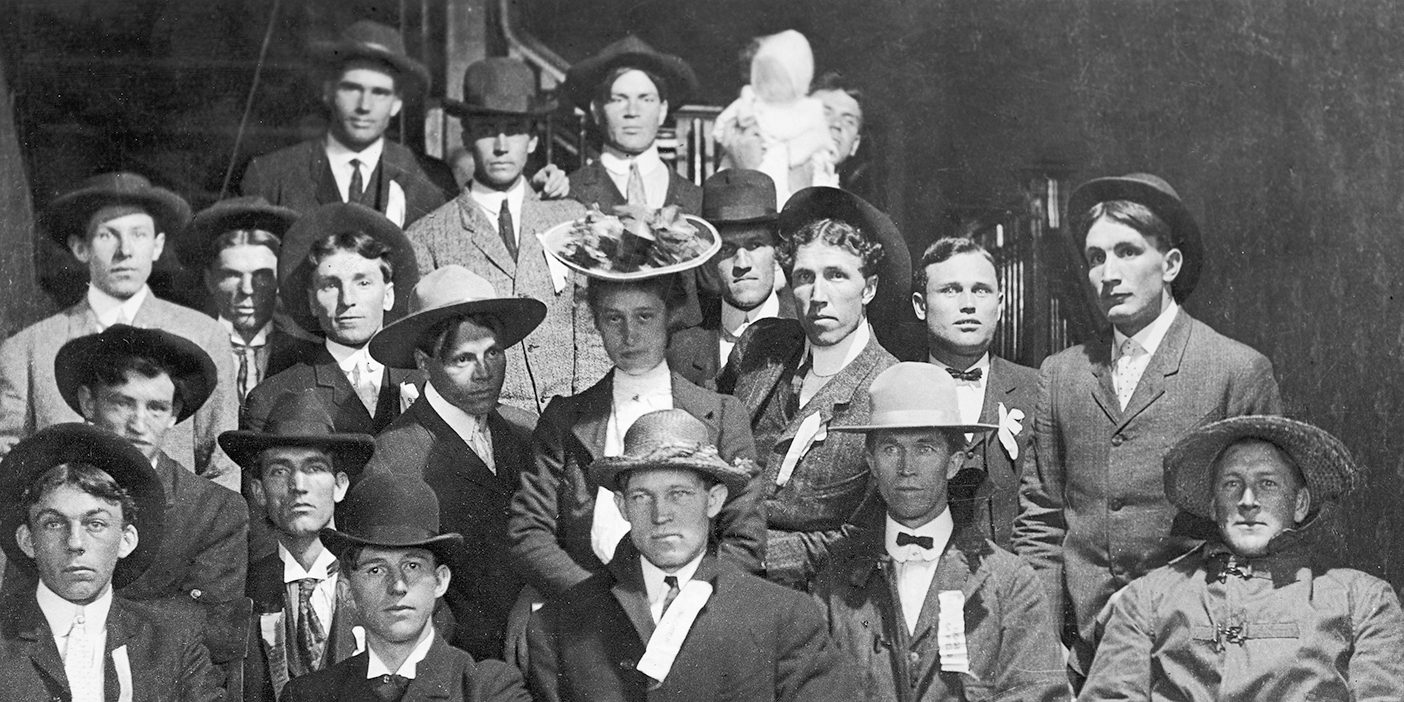By Richard H. Craroft
What a pleasure it is to keep one’s mental thumb on the vibrant intellectual pulse of BYU alumni through reading and reporting to you about some of their writings! I’ve been doing it now for 10 years. Of course, I can’t keep up with the outpouring of quality fiction and nonfiction by BYU alumni–I can only read three books a week, at an hour or so a day–but I persist. From observing my wife’s reading habits and listening to friends, associates, and former students, I would guess that mostBYU alums read about 2 books a month, or 20 to 30 books a year, or 250 books in a decade (or what’s mortality for?). So most of us end up reading a great many books over many years. Because the books we read become part and parcel of our souls, they should be selected with some attention to the kind of souls we wish to become. I suppose my soul will be defined not as good or righteous but as bookish. One book that resonated and reverberated with my bookish soul was Thomas G. Plummer’s Second Wind: Variations on a Theme of Growing Older (Salt Lake City: Shadow Mountain, 2000; 186 pp.; $16.95). In 17 wise and witty short essays, Plummer, a professor of German at BYU, waxes philosophical about waning–about the process of growing older. “All of life leads to memories,” he writes. “The infant has no memories, just energy. The aged person has no energy, just memories” (p. 178). In essays ranging from the ludicrous and hilarious to the tender and spiritual, he shares a variety of rich and enriching memories–all of which testify of the abundant but ephemeral nature of human life.
One book that resonated and reverberated with my bookish soul was Thomas G. Plummer’s Second Wind: Variations on a Theme of Growing Older (Salt Lake City: Shadow Mountain, 2000; 186 pp.; $16.95). In 17 wise and witty short essays, Plummer, a professor of German at BYU, waxes philosophical about waning–about the process of growing older. “All of life leads to memories,” he writes. “The infant has no memories, just energy. The aged person has no energy, just memories” (p. 178). In essays ranging from the ludicrous and hilarious to the tender and spiritual, he shares a variety of rich and enriching memories–all of which testify of the abundant but ephemeral nature of human life.
So does A Wise, Blue Autumn: A Novel about Fathers, Daughters, and Remembering (Salt Lake City: Bookcraft, 2001; 151 pp.; $12.95), by Donald S. Smurthwaite, ’77. This is a worthy sequel to his Fine Old High Priests (1999), the Mormon literature classic about Marcus Hathaway and Sam Nicholson. Inveterate storyteller Marcus, feeling that his mortal life is nearing its end, realizes that all we leave behind for others to learn from are the stories that are told about us. Undertaking to find out from his family and friends what stories they will tell about him after he dies, Marcus leads readers on another pleasant ramble through a gathering of entertaining stories fraught with insight and wisdom. If you enjoyed Fine Old High Priests (and who hasn’t?), you’ll enjoy this.
Margaret Blair Young, ’79, and Darius Aidan Gray have scored a first in their fascinating historical novel, One More River to Cross (Salt Lake City: Bookcraft, 2000; 337 pp.; $19.95). The novel, book one of the Standing on the Promises series, recounts in the voice of an African-American Latter-day Saint the stories of Jane Manning, Elijah Abel, Oscar Crosby, Hark Lay, and Green Flake from 1831 to 1848. Founded in history and biography but run through the alembic of Young’s and Gray’s imaginations, the novel recounts major events in early Church history from the point of view of several black Mormon pioneers. The authors provide useful chapter endnotes detailing the sources for the various historical and biographical events. Part of the prologue reads: “Listening to the stories, most don’t imagine there were any pioneers of color among those Latter-day Saints. But we were there–slaves, some of us; former slaves, some of us; free blacks, some of us. We were there. We were like flies in buttermilk, a few dark specks in a sea of cream” (p. 1). The Association for Mormon Letters named it the Best LDS Novel of 2000.
On the national scene Orson Scott Card, ’75, in Shadow of the Hegemon (New York: Tom Doherty Associates, 2000; 365 pp.; $25.95), presents the second, after Ender’s Shadow, in his projected quartet of science fiction novels dealing with Ender Wiggin’s battle-school group of exceptional children in Ender’s Game. In Shadow of the Hegemon, Bean (Julian Delphiki) undertakes the rescue of group-member Petra Arkanian, who has been kidnapped by Achilles, who is vying with Ender’s brother, Peter, to become the Hegemon, or ruler of the world. Into this gripping product of Card’s amazingly fertile imagination, he inserts (it seems to me) ever-increasing evidences of his Mormon worldview. For instance, in a conversation between Ender Wiggin’s mother and Bean, she tells Bean that family love is “the only thing that brings happiness. . . . All the other things–victories, achievements, honors, causes–they bring only momentary flashes of pleasure. But binding yourself to another person and to the children you make together, that’s life. And you can’t do it if your life is centered on your ambitions. You’ll never be happy. It will never be enough, even if you rule the world” (p. 155). Two other BYU alumni have recently published first novels in the national market: Lois Thompson Bartholomew, ’71, one of my former students, is the mother of 10 children and lives in Walnut Grove, Minn. In her children’s novel, The White Dove (Boston: Houghton Mifflin, 2000; 200 pp.; $15), set in the imaginary Kingdom of Comnor, Bartholomew tells the engaging story of the adventures of Tasha, a princess whose father has abdicated the throne of Comnor for the sake of democracy. Fleeing the tyranny of Com, Tasha searches for Marko, the people’s elected leader, in order to gather her people, overthrow tyranny, and restore the republic.
Two other BYU alumni have recently published first novels in the national market: Lois Thompson Bartholomew, ’71, one of my former students, is the mother of 10 children and lives in Walnut Grove, Minn. In her children’s novel, The White Dove (Boston: Houghton Mifflin, 2000; 200 pp.; $15), set in the imaginary Kingdom of Comnor, Bartholomew tells the engaging story of the adventures of Tasha, a princess whose father has abdicated the throne of Comnor for the sake of democracy. Fleeing the tyranny of Com, Tasha searches for Marko, the people’s elected leader, in order to gather her people, overthrow tyranny, and restore the republic.
Poet Laurel Stowe Brady, ’86, has reached a national audience with her well-written novel for children, Say You Are My Sister (New York: HarperCollins, 2001; 208 pp.; $15.95). In rural Georgia during World War II, 12-year-old Ramona Louise determines to do everything to help her beloved 16-year-old sister, Georgie, keep the family together after the death of their parents, all the while keeping a shocking secret. Well told in a Huck Finn–like Southern dialect, this read-aloud-to-children-and-grandchildren tale combines three orphans, buried treasure, race relations, human kindness, and family love in a stick-to-the-soul kind of story that I found most engaging.
I hope bookish readers of Book Nook have found it helpful to winnow and sift among these suggestions for grist for their personal reading mills.?*
Related Article: Provo Productions
After 38 years Richard H. Cracroft recently retired as a professor of English; he also directed the Center for the Study of Christian Values in Literature for many years.
web: Past Book Nook columns can be found online at magazine.byu.edu.
correction: On p. 55 of the summer issue of BYU Magazine, Carol Clark Ottesen, ’52, was incorrectly identified as Carol Ottesen, ’55.









